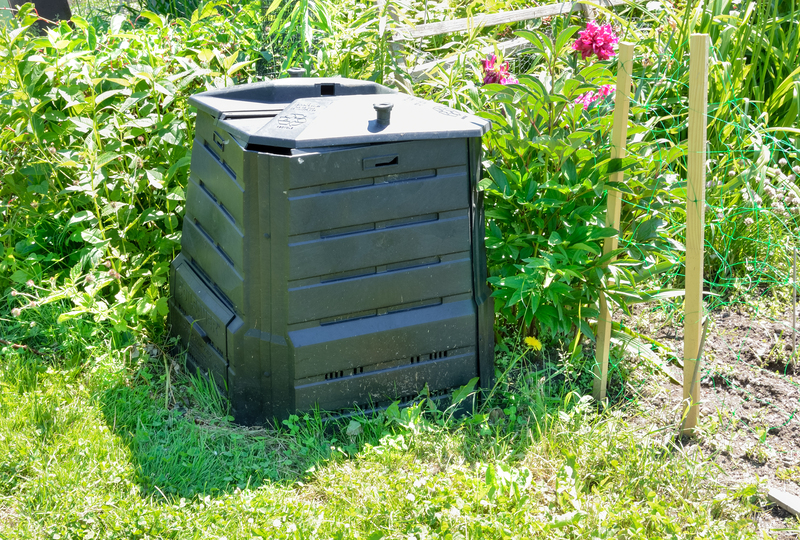Understanding Manufacturing Waste Management
Effective manufacturing waste management is crucial for minimizing environmental impact, reducing costs, and ensuring regulatory compliance. The manufacturing sector faces unique challenges in handling waste, and targeted strategies are essential to address these challenges effectively. This article delves into various targeted strategies that can help manage waste in the manufacturing industry efficiently.

The Importance of Waste Management in Manufacturing
Manufacturing processes generate a significant amount of waste, which can include metal scraps, chemicals, packaging materials, and more. Efficient waste management is essential for several reasons:
- Environmental Impact: Proper waste management reduces pollution and conserves natural resources.
- Cost Reduction: Minimizing waste can lead to reduced disposal costs and material savings.
- Regulatory Compliance: Adhering to waste management regulations prevents legal issues and fines.
- Reputation: Sustainable practices enhance brand image and trustworthiness among consumers and stakeholders.
Types of Manufacturing Waste
Understanding the types of waste produced in manufacturing is crucial for implementing targeted strategies. Common types include:
- Solid Waste: This includes packaging materials, metal scraps, and other non-hazardous by-products.
- Liquid Waste: Wastewater and other liquid chemicals that require careful treatment and disposal.
- Hazardous Waste: Toxic chemicals, flammable substances, and other materials that pose significant risks to health and the environment.
Targeted Strategies for Managing Manufacturing Waste
The following strategies are designed to help manufacturers effectively manage waste while enhancing sustainability and efficiency.
1. Waste Auditing
Conducting regular waste audits is a foundational step in understanding waste generation patterns within a manufacturing facility. A detailed audit can help identify the sources and types of waste, allowing for targeted strategies to reduce and manage them efficiently.
2. Reduction and Source Minimization
The most effective way to manage waste is to prevent its generation altogether. By reviewing production processes, manufacturers can identify opportunities to minimize waste:
- Implementing lean manufacturing techniques to reduce excess materials.
- Optimizing raw material use through better planning and forecasting.
- Investing in technology that reduces material losses and enhances efficiency.
3. Reuse and Recycle Initiatives
Encouraging the reuse and recycling of materials is a key strategy in waste management. Manufacturers can:
- Set up a recycling program for materials like metals, plastics, and paper.
- Partner with other businesses or organizations for material exchange programs.
- Invest in equipment and technology that facilitate recycling of by-products.
4. Developing a Circular Economy
Transitioning towards a circular economy model involves designing products and processes to enable reutilization of materials. This can significantly reduce waste outputs by:
- Designing products for easy disassembly and material recovery.
- Utilizing renewable energy sources to power manufacturing processes.
- Creating closed-loop systems where waste is reintroduced into the production cycle.
5. Employee Training and Engagement
Educating and engaging employees is crucial for effective waste management. Training programs should aim to:
- Raise awareness about waste reduction goals and practices.
- Encourage innovative thinking for waste minimization solutions.
- Incentivize and reward staff for contributing to waste reduction targets.
6. Partnership with Waste Management Experts
Collaborating with professional waste management companies can enhance a manufacturer's ability to process and dispose of waste efficiently. External experts can offer:
- Specialized knowledge in handling hazardous materials safely.
- Advanced facilities and technologies for waste treatment.
- Compliance assistance with environmental regulations and standards.
7. Implementing Advanced Technologies
Leveraging technology is a game-changer in modern waste management. Technologies such as:
- IoT and Sensors: To monitor waste levels and optimize collection schedules.
- AI and Machine Learning: To analyze waste patterns and predict future waste generation.
- Automated Sorting Systems: To improve recycling efficiency and reduce labor costs.
Measuring Success in Waste Management
It's crucial to measure the effectiveness of waste management strategies through key performance indicators (KPIs). Some important KPIs include:
- Reduction in total waste volume.
- Percentage of waste recycled or reused.
- Cost savings from waste reduction initiatives.
- Compliance rates with environmental regulations.
Consistently tracking these metrics enables continuous improvement and ensures that the strategies implemented are yielding desired results.

Future Trends in Manufacturing Waste Management
As environmental concerns grow and technology advances, the future of manufacturing waste management will likely include:
- Increased adoption of digital platforms for waste tracking and management.
- Greater emphasis on circular economy practices and sustainability.
- Advancements in biodegradable materials and green manufacturing processes.
By staying ahead of these trends, manufacturers can remain competitive while contributing positively to environmental conservation.
Conclusion
Efficient manufacturing waste management requires a combination of strategic planning, technological innovation, and employee engagement. By implementing targeted strategies, manufacturers can significantly reduce waste, enhance sustainability, and improve operational efficiency. As the industry evolves, embracing these strategies will help manufacturers not only address current challenges but also prepare for future demands in waste management.